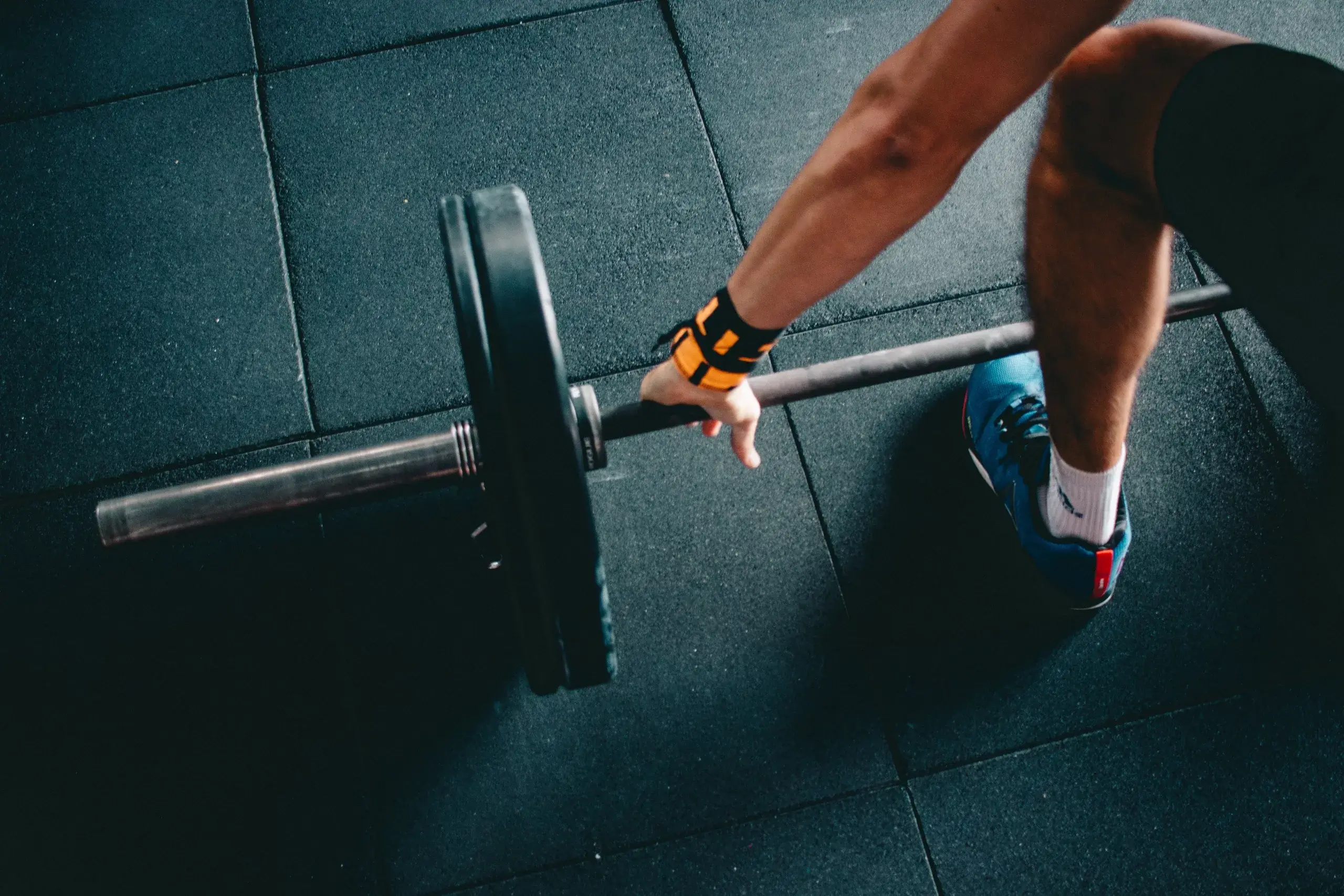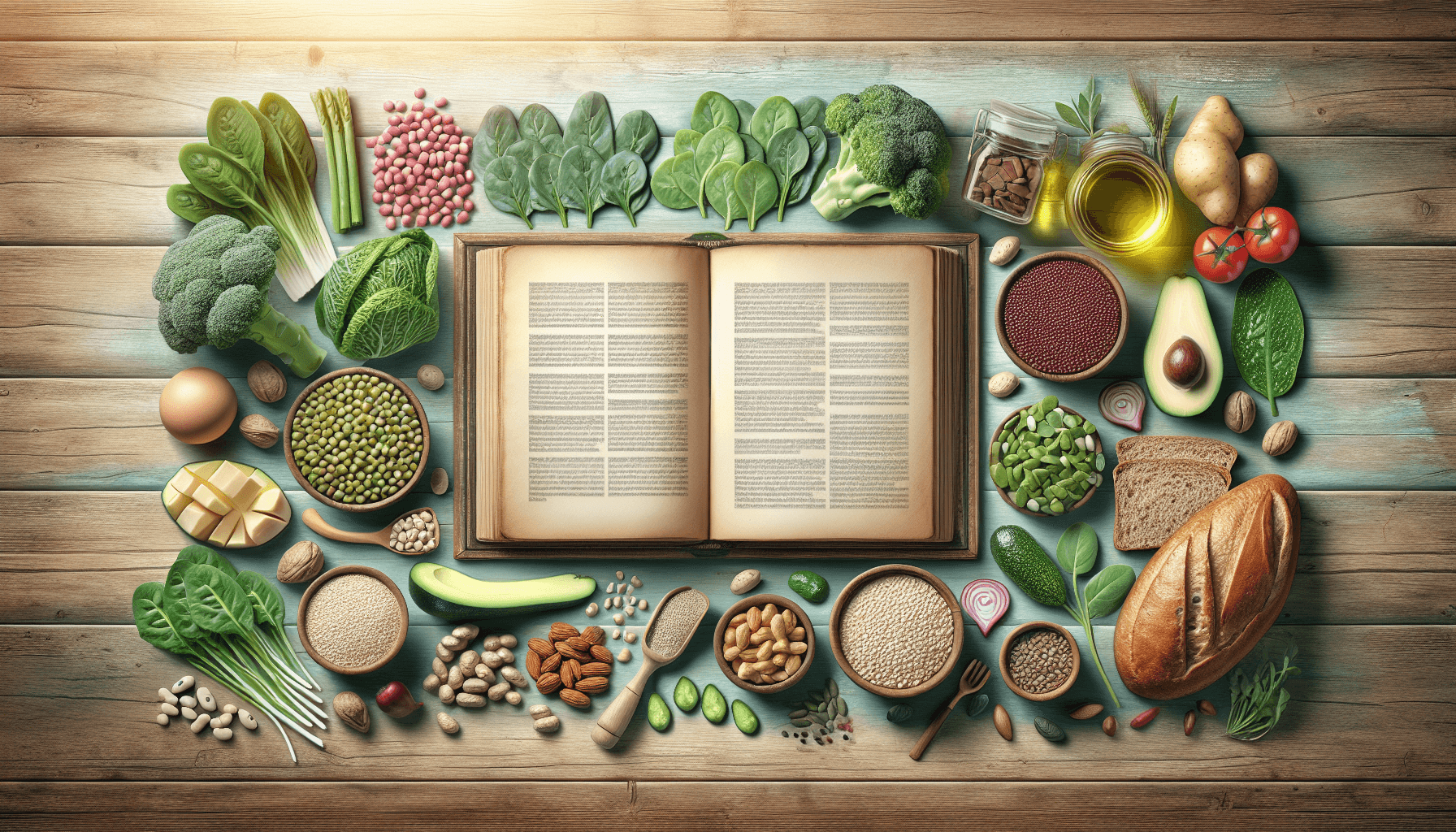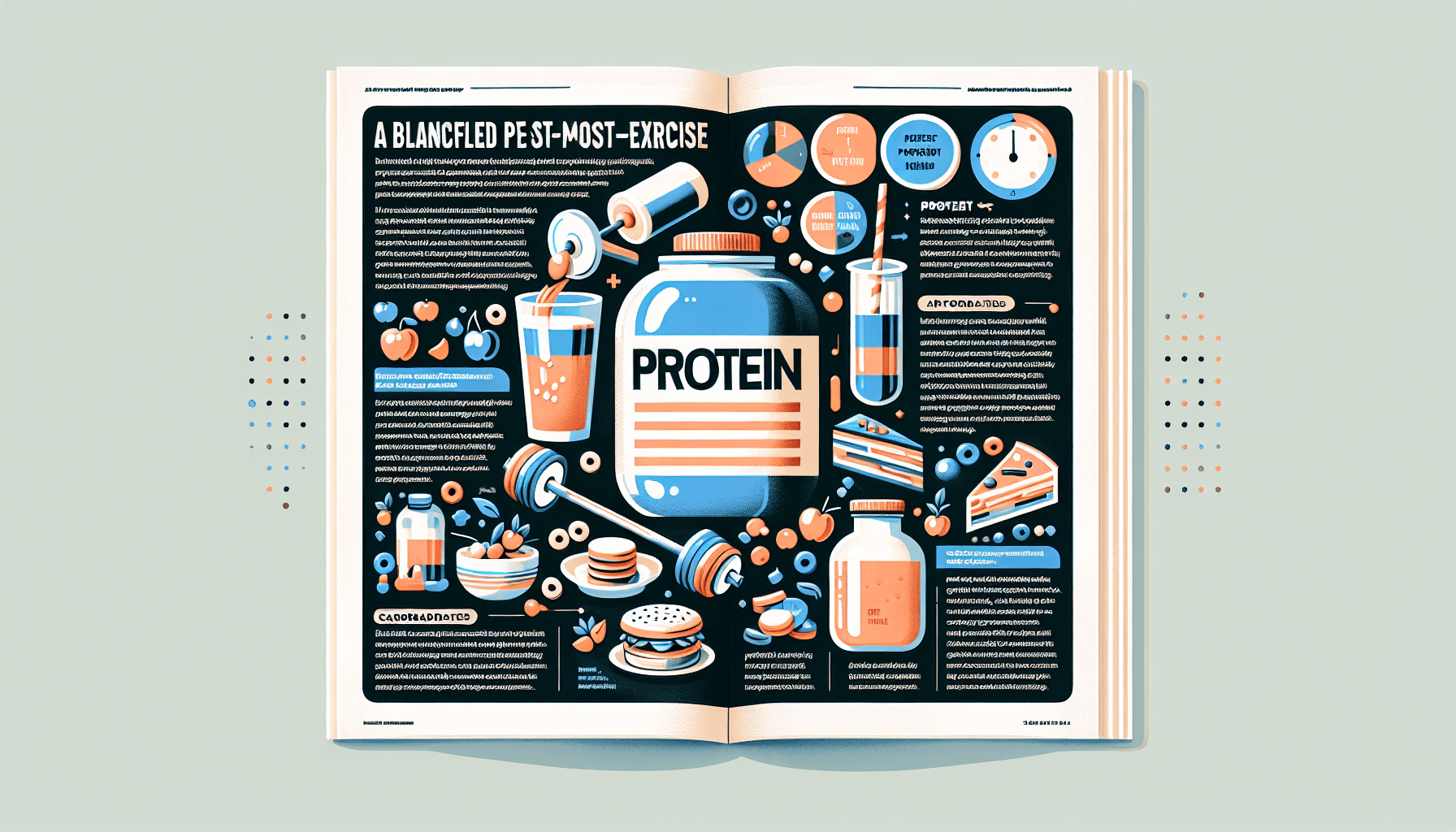Whether you’re a seasoned athlete or just starting out on your fitness journey, understanding the importance of a post-workout meal is crucial for maximizing your muscle recovery and overall performance. In this article, we will explore the benefits of consuming a protein-packed meal after a workout and provide you with expert tips on how to craft the perfect post-workout meal to nourish your muscles and encourage optimal recovery. So get ready to power up with protein and take your fitness routine to the next level!

Importance of Post-Workout Nutrition
Proper nutrition after a workout is crucial for muscle recovery and growth. When you engage in intense physical activity, your muscles undergo stress and need to repair and rebuild. This is where post-workout nutrition plays a vital role. By providing your body with the necessary nutrients, you can optimize the recovery process and maximize the benefits of your workout. Two key components of post-workout nutrition are protein and other essential nutrients.
The Role of Protein in Muscle Recovery
Protein is often referred to as the building block of muscle, and for good reason. It plays a critical role in repairing and building muscle tissue. During exercise, muscle protein breakdown occurs, and the provision of protein post-workout helps to stimulate muscle protein synthesis, leading to muscle repair and growth.
To ensure optimal muscle recovery, it is recommended to consume protein within the post-workout window, which is typically within 30 minutes to an hour after exercise. This is when the muscles are most responsive to the intake of nutrients. By providing your body with a sufficient amount of protein during this time, you can speed up the recovery process and enhance muscle adaptation.
Other Essential Nutrients for Muscle Recovery
While protein is essential for muscle recovery, it is not the only nutrient that plays a role in the process. Other essential nutrients, such as carbohydrates, fats, and hydration, also contribute to optimal recovery and performance.
Carbohydrates are the body’s primary source of energy. Consuming carbohydrates after a workout helps replenish glycogen stores in the muscles, which can become depleted during intense exercise. Including carbohydrates in your post-workout meal or snack provides your body with the energy it needs to recover and prepare for your next workout.
Fats, especially healthy sources like avocados, nuts, and olive oil, play a crucial role in post-workout nutrition. They provide essential fatty acids that support hormone production, reduce inflammation, and aid in nutrient absorption. Including a moderate amount of healthy fats in your post-workout meal can promote optimal recovery and overall health.
Hydration is often underestimated when it comes to post-workout nutrition. Ensuring that you stay hydrated both during and after your workout is essential for muscle recovery. Water helps transport nutrients to your muscles, supports cellular function, and aids in the removal of waste products. Replenishing fluids lost during exercise is crucial to optimize recovery and prevent dehydration.
Timing is Key
While consuming the right nutrients is important, the timing of your post-workout meal also plays a significant role in muscle recovery. There are two key aspects to consider in terms of timing: the immediate post-workout meal and the eating window for optimal recovery.
Immediate Post-Workout Meal
The immediate post-workout meal refers to the meal or snack consumed within 30 minutes to an hour after exercise. This is the time when your muscles are most primed for nutrient uptake, and providing them with the necessary nutrients can accelerate the recovery process. A combination of protein and carbohydrates is ideal for this meal.
Protein sources such as lean meats, poultry, fish, dairy products, and plant-based options can all be incorporated into your immediate post-workout meal. Pairing them with carbohydrates, such as whole grains, fruits, or starchy vegetables, can further enhance the recovery process by replenishing glycogen stores and providing additional energy.
Eating Window for Optimal Recovery
Beyond the immediate post-workout meal, it is essential to maintain a consistent intake of nutrient-rich foods throughout the day to support ongoing muscle recovery. This eating window for optimal recovery typically lasts up to two hours after exercise. During this time, focus on consuming a balanced meal that includes adequate protein, carbohydrates, and fat.
The specific macronutrient ratio within this eating window can vary depending on individual goals and preferences. However, a general guideline is to aim for a ratio of about 2:1 or 3:1 carbohydrates to protein. This combination helps replenish glycogen, reduce muscle protein breakdown, and promote muscle protein synthesis.
Protein Sources for Muscle Recovery
When it comes to choosing protein sources for muscle recovery, there are plenty of options to consider. Here are some protein-rich foods that can help support your post-workout nutrition:
Lean Meats
Lean meats, such as chicken, turkey, and beef, are excellent sources of high-quality protein. They contain essential amino acids necessary for muscle repair and growth. Opt for lean cuts, remove visible fat, and prepare them using healthy cooking methods like grilling or baking to keep the meal balanced and nutritious.
Poultry
Poultry, including chicken and turkey, is a popular protein choice among fitness enthusiasts. It is lean, versatile, and rich in essential amino acids. Skinless poultry is low in fat and provides a substantial amount of protein per serving, making it an excellent addition to your post-workout meal.
Fish and Seafood
Fish and seafood, such as salmon, tuna, shrimp, and cod, are not only packed with protein but also provide essential omega-3 fatty acids. These fatty acids have anti-inflammatory properties and can aid in muscle recovery. Including fish and seafood in your post-workout meals can provide a well-rounded source of protein and healthy fats.
Dairy Products
Dairy products, including milk, yogurt, and cottage cheese, are excellent sources of protein. They also contain essential nutrients like calcium, which supports bone health. If you prefer dairy-based options, consider incorporating them into your post-workout nutrition routine for a convenient and nutritious protein source.
Plant-Based Options
For those following a plant-based or vegetarian diet, there are plenty of protein-rich options available as well. Legumes, tofu, tempeh, and quinoa are all plant-based sources of protein that can support muscle recovery. Including a variety of plant-based protein sources in your post-workout meals ensures you receive all the essential amino acids your body needs.
Choosing the Right Carbohydrates
Carbohydrates are a key component of post-workout nutrition, providing your body with the energy it needs to recover and repair. When selecting carbohydrates for optimal recovery, it is important to consider the type of carbohydrates and their fiber content.
Simple vs Complex Carbohydrates
Simple carbohydrates, such as fruits and refined sugars, are quickly absorbed by the body and provide a rapid source of energy. While they can be beneficial immediately after a workout to replenish glycogen stores, it is essential to balance them with complex carbohydrates.
Complex carbohydrates, found in whole grains, vegetables, and legumes, provide a steady and sustained release of energy. They are higher in fiber, which slows down digestion and helps keep you feeling fuller for longer. Including a combination of simple and complex carbohydrates in your post-workout meal can provide the necessary energy for recovery while also promoting sustained energy levels.
Fiber-Rich Options
In addition to considering the type of carbohydrates, it is also important to choose fiber-rich options. Fiber aids in digestion, helps regulate blood sugar levels, and promotes overall gut health. Opt for whole grains, fruits, and vegetables that are rich in fiber to support your post-workout recovery and overall well-being.

Fats for Optimal Recovery
Including healthy sources of fats in your post-workout nutrition can provide numerous benefits for optimal recovery and overall health. Here are some key considerations when it comes to fats:
Healthy Sources of Fats
When selecting fats for your post-workout meals, focus on healthy sources such as avocados, nuts, seeds, and olive oil. These fats are rich in monounsaturated and polyunsaturated fats, which have been shown to support heart health, reduce inflammation, and aid in nutrient absorption. Including a moderate amount of healthy fats in your post-workout meal can provide the necessary energy and support the recovery process.
Essential Fatty Acids
Omega-3 fatty acids, a type of essential fatty acid, have been shown to have anti-inflammatory properties and can aid in muscle recovery. Fatty fish, such as salmon and tuna, are excellent sources of omega-3 fatty acids. If you are following a plant-based or vegetarian diet, consider incorporating sources of omega-3 fatty acids like flaxseed, chia seeds, and walnuts into your post-workout nutrition routine.
Hydration and Electrolyte Balance
Proper hydration and electrolyte balance are often overlooked aspects of post-workout nutrition. However, they are essential for optimal recovery and performance. Here’s why they matter:
The Importance of Staying Hydrated
Water is involved in almost every bodily function, including muscle repair and glycogen synthesis. Staying adequately hydrated before, during, and after your workout can help optimize nutrient delivery to your muscles and support overall recovery.
To ensure proper hydration, drink water throughout the day, especially during your workout. Aim to consume at least 8 cups (64 ounces) of water per day, and increase this amount if you are engaging in intense or prolonged exercise.
Replenishing Electrolytes
Electrolytes are minerals, such as sodium, potassium, and magnesium, that play a crucial role in fluid balance, nerve function, and muscle contractions. During exercise, electrolytes can be lost through sweat, and replenishing them is important for maintaining proper muscle function and overall hydration.
To replenish electrolytes, consider consuming foods or beverages that contain these minerals, such as sports drinks, coconut water, or electrolyte-infused water. Additionally, including foods rich in electrolytes, such as bananas, leafy greens, and nuts, in your post-workout meals can help maintain electrolyte balance.

Balancing Macronutrients
To optimize muscle recovery, it is essential to find the right balance of macronutrients in your post-workout nutrition. Here are some key considerations for balancing protein, carbohydrates, and fats:
Protein to Carbohydrate Ratio
The ratio of protein to carbohydrates in your post-workout meal can vary depending on individual goals and preferences. However, a general guideline is to aim for a ratio of about 2:1 or 3:1 carbohydrates to protein. This combination helps replenish glycogen stores, reduce muscle protein breakdown, and promote muscle protein synthesis.
If your primary goal is muscle gain or recovery, you may choose to increase the protein content in your post-workout meal. On the other hand, if you are focusing on endurance or prolonged exercise, you may prefer a higher carbohydrate intake to replenish energy stores.
Quality and Quantity of Fats
When it comes to fats, focus on consuming healthy sources in moderation. Pay attention to the quantity of fat consumed, as it is more calorie-dense than protein or carbohydrates. Including a moderate amount of healthy fats, such as avocados or nuts, in your post-workout meal can promote satiety and provide long-lasting energy.
Supplementing Post-Workout Nutrition
While getting nutrients from whole foods is optimal, certain supplements can be beneficial in supporting post-workout recovery. Here are some commonly used supplements:
Protein Powders
Protein powders, such as whey or plant-based options like pea or rice protein, can be a convenient way to ensure you are meeting your protein needs. They can be easily added to shakes or smoothies, providing a quick and accessible source of protein after your workout.
Amino Acid Supplements
Amino acid supplements, such as branched-chain amino acids (BCAAs), are often used to support muscle recovery and reduce muscle soreness. BCAAs, specifically leucine, isoleucine, and valine, are essential amino acids that play a crucial role in muscle protein synthesis. Supplementing with BCAAs can provide immediate fuel for your muscles and enhance muscle recovery.
Creatine
Creatine is a naturally occurring compound that is found in small amounts in foods like meat and fish. It has been shown to improve muscle strength and power, making it a popular supplement among athletes and fitness enthusiasts. Including creatine in your post-workout routine can enhance recovery and support muscle growth.
Omega-3 Fatty Acid Supplements
If you struggle to consume enough omega-3 fatty acids through food sources, consider taking omega-3 supplements. These supplements are derived from fish oil or algae and provide the essential fatty acids EPA and DHA. Omega-3 supplements can support overall health, reduce inflammation, and aid in muscle recovery.

Sample Post-Workout Meal Ideas
To put all the information into practice, here are some sample post-workout meal ideas that incorporate the recommended nutrients:
Grilled Chicken Breast with Sweet Potatoes and Steamed Vegetables
- Grilled chicken breast: Provides high-quality protein to support muscle recovery.
- Sweet potatoes: A complex carbohydrate that replenishes glycogen stores and provides sustained energy.
- Steamed vegetables: A fiber-rich option that adds essential vitamins and minerals to support overall health.
Salmon with Quinoa and Roasted Brussels Sprouts
- Salmon: A protein-rich fish that also provides essential omega-3 fatty acids for inflammation control and muscle recovery.
- Quinoa: A whole grain that is rich in carbohydrates and protein, providing sustained energy and supporting muscle repair.
- Roasted Brussels sprouts: A fiber-rich vegetable that adds antioxidants and other beneficial nutrients to your post-workout meal.
Greek Yogurt with Berries and Almonds
- Greek yogurt: A protein-packed dairy product that also contains calcium to support bone health.
- Berries: A great source of carbohydrates and antioxidants that aid in recovery and provide essential vitamins and minerals.
- Almonds: A healthy source of fats and additional protein, providing satiety and supporting recovery.
Conclusion
Post-workout nutrition is a crucial aspect of optimizing muscle recovery and achieving your fitness goals. By providing your body with the right balance of protein, carbohydrates, fats, and hydration, you can effectively support muscle repair, replenish energy stores, and enhance overall performance. Remember to also consider the timing of your post-workout meal and incorporate high-quality protein sources, carbohydrates with fiber, and healthy fats. With proper post-workout nutrition, you can maximize the benefits of your workouts and help your muscles recover and grow stronger.

